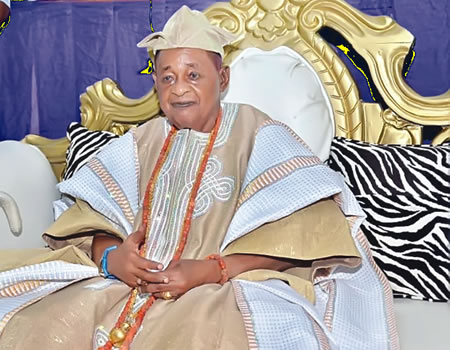The Oyo Royal title holders and the entire Alaafin of the Oyo ruling family have criticized the state House of Assembly’s proposed chieftaincy amendment law as being oppressive and out of date.
The ruling houses strongly objected to the suspension of the Council of Obas and Chiefs’ authority over all issues pertaining to chieftaincies in the state in their memo titled “Memorandum On Chiefs Amendment Law 2023 Section 28 addressed to the Chairman, House Committee on Local Government and Chieftaincy Affairs,” a copy of which was obtained on Saturday.
They questioned how they would enact the usurpatory and dictatorial law that is a requirement of contemporary society.
Together with the entire Alaafin of Oyo ruling family, traditional royal title holders/chiefs Babayaji of Oyo, Onasokun of Oyo, Olusami of Oyo, AroleOba of Oyo, and Agunpopo of Oyo signed the memo.
In part, it stated, “We vehemently object to the abrogation of the council’s powers on all issues pertaining to chieftains in the state. It is better to dissolve the council than to render it toothless and useless in front of the public.
“We view any attempt to curtail the council’s powers as a perilous trend that threatens to corrupt the long-established traditional and customary administrative structure that has supported our civilization and heritage at the local level of government.
No doubt, if this proposed law or amendment is passed, politicians will use our traditional leaders as puns, ushering in a new era of favoritism, nepotism, and influence peddling. The awarding of beaded crowns could then be used to reward those with the best connections or the highest bids for their political loyalty.
Read Also: 200 CSOs endorse Gov Lalong for SGF
The purpose of the law is to “regulate chieftains in accordance with the expectations of contemporary society. How is it possible for us to enact this tyrannical and usurpative law as a rule of modern society?
“Even in Great Britain, it is well known that the Prime Minister has never interfered with the selection process or the coronation of the Queen or the King (in both ancient and modern times), and this week is no exception. Are we more advanced than those who first introduced civilization to us in 1842 and earlier?
The law gives the governor the authority to “specify,” which means “name or state explicitly or in detail,” the people who hold chieftaincy positions and those who are qualified to don beaded crowns.
They claimed that according to their interpretation of the relevant legal provision, the governor serves as the nominator, specifier, approving officer, and donor of the beaded crown to whoever the governor chooses to favor.
They argued that under the new law, “The tail will be wagging the dog,” the royal fathers of Yoruba land are fathers to all of their subjects, including those in positions of authority.
“This innovation and modernity is strange to our custom and culture since most recognized chieftaincies provide for their family nomination, kingmakers’ recommendation (which also includes community acceptance and support), and government scrutiny, approval, and pronouncement,” they claimed.
Therefore, they begged the House and the governor to refrain from confirming the widespread suspicion that they were attempting to give compensatory crowns and chieftaincy titles to some well-known title holders who had recently lost their well-publicized crowns due to the ascension of a prominent traditional ruler.

